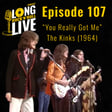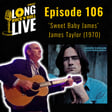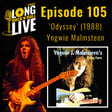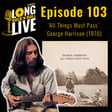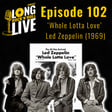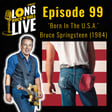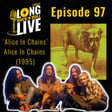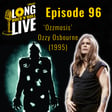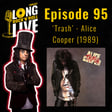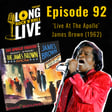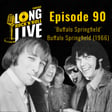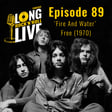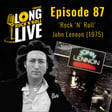
104. 'Creep' - Radiohead (1992)
When “Creep” hit the airwaves in the early '90s, it both launched and haunted Radiohead. What began as a raw, angsty ballad about alienation and obsession became a global anthem for outsiders, misfits, and anyone who ever felt like they didn’t belong. But behind the success lies a story of surprise, sabotage and a band that despised the song that made them famous. From its iconic guitar crunch, to legal battles over chord similarities, “Creep” is one of the most unlikely alt-rock hits of all time. In this episode, we unpack the controversy, emotion, and legacy of a song Radiohead would rather forget, but the world refuses to let go of.
Episode Playlist: https://open.spotify.com/playlist/24zfCwIAupPJS9JS3P5JQT?si=aafe907425924327
* Follow Long Live Rock 'N' Roll online: https://linktr.ee/longlivernrpod
* Get in touch and/or leave us a review: longliverocknrollpodcast@gmail.com
* Listen & Review us on Apple: https://podcasts.apple.com/gb/podcast/long-live-rock-n-roll/id1581139831
* Listen & Review us on Spotify: https://open.spotify.com/show/2wZW1BYAw9wJ6Z5blo2uGj
#Radiohead #Creep #RadioheadCreep #90sRock #AlternativeRock #ThomYorke #PabloHoney #GrungeEra #AltRockHistory #MusicPodcast #SongAnalysis #IconicSongs #MusicDeepDive #RockHistory
